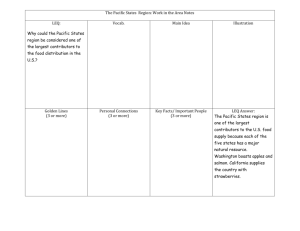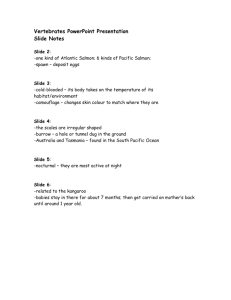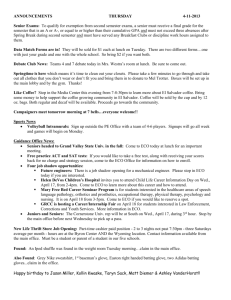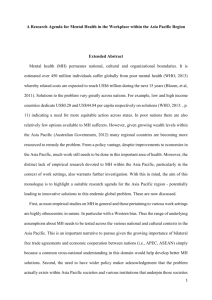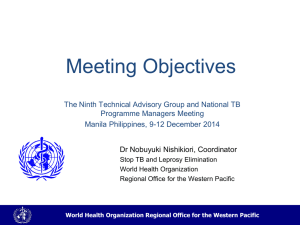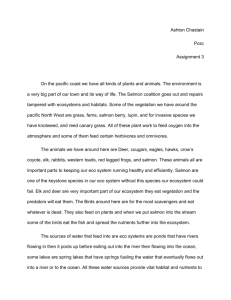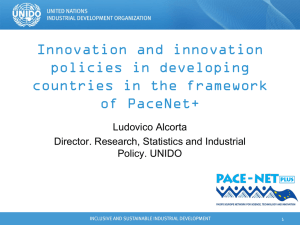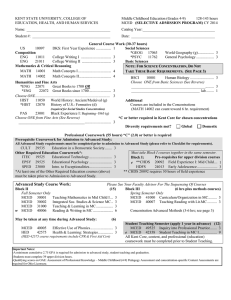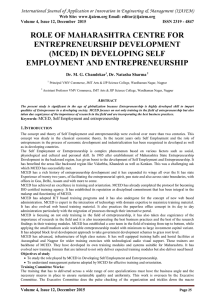statement by mr. pranesh chandra saha
advertisement
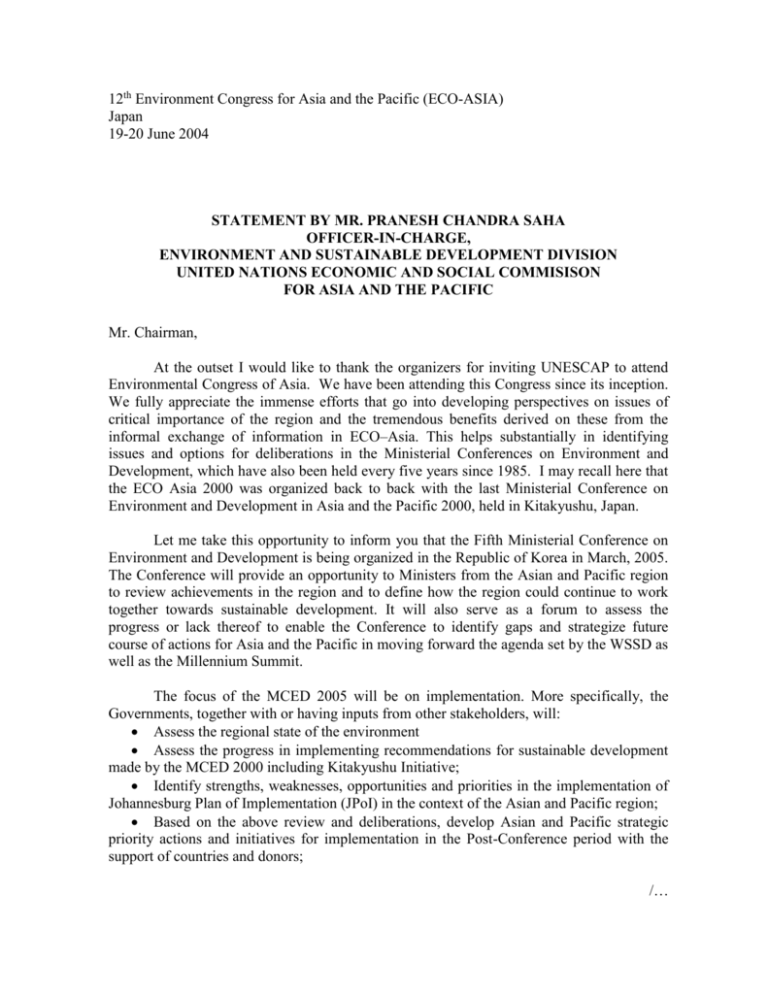
12th Environment Congress for Asia and the Pacific (ECO-ASIA) Japan 19-20 June 2004 STATEMENT BY MR. PRANESH CHANDRA SAHA OFFICER-IN-CHARGE, ENVIRONMENT AND SUSTAINABLE DEVELOPMENT DIVISION UNITED NATIONS ECONOMIC AND SOCIAL COMMISISON FOR ASIA AND THE PACIFIC Mr. Chairman, At the outset I would like to thank the organizers for inviting UNESCAP to attend Environmental Congress of Asia. We have been attending this Congress since its inception. We fully appreciate the immense efforts that go into developing perspectives on issues of critical importance of the region and the tremendous benefits derived on these from the informal exchange of information in ECO–Asia. This helps substantially in identifying issues and options for deliberations in the Ministerial Conferences on Environment and Development, which have also been held every five years since 1985. I may recall here that the ECO Asia 2000 was organized back to back with the last Ministerial Conference on Environment and Development in Asia and the Pacific 2000, held in Kitakyushu, Japan. Let me take this opportunity to inform you that the Fifth Ministerial Conference on Environment and Development is being organized in the Republic of Korea in March, 2005. The Conference will provide an opportunity to Ministers from the Asian and Pacific region to review achievements in the region and to define how the region could continue to work together towards sustainable development. It will also serve as a forum to assess the progress or lack thereof to enable the Conference to identify gaps and strategize future course of actions for Asia and the Pacific in moving forward the agenda set by the WSSD as well as the Millennium Summit. The focus of the MCED 2005 will be on implementation. More specifically, the Governments, together with or having inputs from other stakeholders, will: Assess the regional state of the environment Assess the progress in implementing recommendations for sustainable development made by the MCED 2000 including Kitakyushu Initiative; Identify strengths, weaknesses, opportunities and priorities in the implementation of Johannesburg Plan of Implementation (JPoI) in the context of the Asian and Pacific region; Based on the above review and deliberations, develop Asian and Pacific strategic priority actions and initiatives for implementation in the Post-Conference period with the support of countries and donors; /… 2 Have the opportunity to strengthen region wide alliances and capacity among all stakeholders, including civil society and the business community through the organization of such associated events as; Private Sector Forum, NGO/Media Symposium, Multistakeholder Forum, Science Symposium, Public–private partnership event and Clean Technology Exhibition; Issue a Ministerial Declaration to reiterate & move forward the commitments made by countries at the WSSD and Millennium Summits and other Forums towards sustainable development. Mr. Chairman, This august gathering under ECO–Asia provide an excellent forum for exchange of information and generating ideas that would be very beneficial in the preparatory process of MCED 2005 and in building synergies between the two forums. In addition, work carried out by ECO–Asia under its Asia-Pacific Environmental Innovation Strategy Project (APEIS) would also assist in highlighting future scenarios on environment to Ministers in MCED 2005. Moreover, I would like to mention that we are also closely involved with the Asia Pacific Forum on Environment and Development (APFED), which we expect would provide linkage and synergies to MCED 2005 based on the immense efforts it has put in developing a perspective on issues of critical importance to the region. Before I conclude, I would like to congratulate the ECO–Asia Secretariat for its unstinted dedication and hard work in preparation for the ECO–Asia 2004 and assure UNESCAP’s continuing support to and collaboration with ECO-Asia and its initiatives. Thank you for your kind attention.
